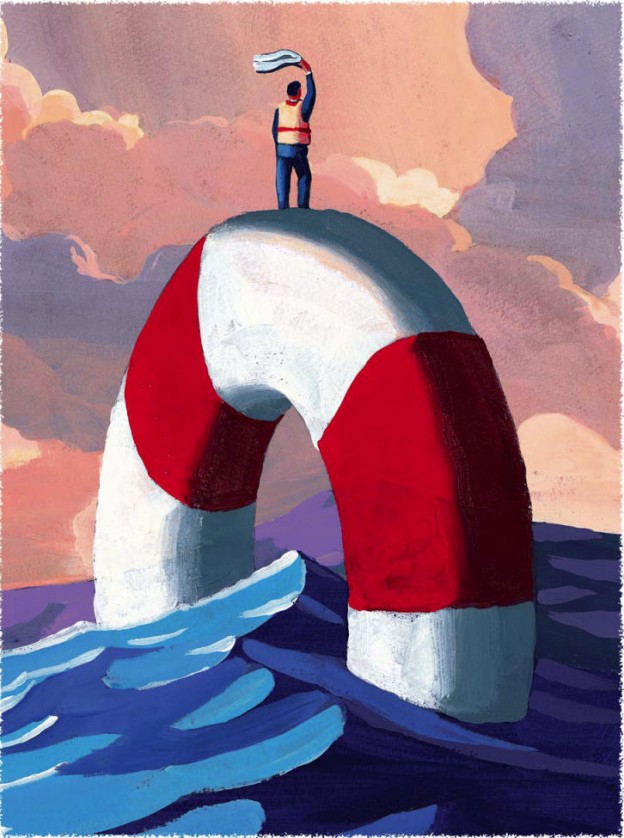5 Paradigm Shifts That Will Save Funeral Service
June 27th, 2012In 1962 Thomas Kuhn wrote about scientific advances where “one conceptual world view is replaced by another.”
Think of a paradigm shift as a change from one way of thinking to another. It’s a revolution, a transformation, a sort of metamorphosis.
It doesn’t just happen, but rather it is driven by agents of change. The printing press, the Internet and the shift from the earth as the center of the universe are all examples of historical agents of paradigm shifts.
Funeral service is in dire need of a paradigm shift. Funeral directors are the most compassionate, giving group of people that I know. Their effort to help others during their darkest hour is one of the world’s most noble acts.
I believe a paradigm shift relative to our business is necessary to address the many challenges that we face today.
Let me suggest several agents of change for a paradigm shift that can save the funeral profession:
1. Evaluate Your Value
It clearly demonstrates the potential value for funeral service. Early in my career, I wondered if there was any reason for funeral service. What need are we serving? The answer to that important question is provided in the Evasion-Encounter-Reconciliation grief model. Supporting families as they encounter the reality of death is the foundation of the true value we deliver.
2. Listen to the Baby Boomers
The Baby Boomers have slowly been replacing the GI and Silent generations for the past 20 years! This transition, like everything else in funeral service, is extremely slow and can only be seen from a long term perspective. However, the impact of a group of over 72 million people with a dramatically different mindset and perspective is simply enormous. The reality is that in another 10 years the familiar, traditional generational group will no longer exist!
3. Focus on Grief Support Needs
Thomas Lynch said it best, “A good funeral gets the dead where they need to go and the living where they need to be.” A funeral service doesn’t heal families, but it puts them in the direction of healing. It confronts their loss rather than disguising it (which is our tendency). The paradigm shift is recognizing that 10% of what we charge for is logistics – getting the dead where they need to go, while 90% is supporting the emotional needs of the family and the community. We dispose, but we are not a disposition business!
4. Embrace Technology
How can technology help you meet the emotional needs of families? Easy! How many times a day are you, as a funeral director, doing menial, repetitive clerical tasks? How many times are you trying to keep track of one-thousand little details? How many times are you trying to communicate with numerous individuals to coordinate a service? How many times would you have liked to personalize a funeral service or experience but simply did not have the time? There are technology solutions for all these questions that will allow you to focus on the truly important thing – accompanying your families on a meaningful journey of grief.
5. See Change as an Opportunity
The business infrastructure (facilities, processes, rituals, deliverables) we have today were developed over decades to serve the previous two generations. We need to evaluate what still serves the current generation and let go of what does not! Let the service of the emotional needs of families be the foundation, and tear everything else down, slowly, piece by piece. Our profession needs to put the key elements back together in a way that meets the needs of the families we have the opportunity to serve today!
I believe looking at funeral service through the lens of these concepts can provide a paradigm shift that will enable us to embrace a bright and successful future!
 ABOUT THE AUTHOR: Lajos Szabo, a licensed funeral director in Ohio and Architect by training, has been involved in funeral service since 1988. His portfolio of work includes, Schoedinger Funeral & Cremation Service, PMP Rooms, Cut Caskets, Meaningful Memories, Funeral of the Future research and several US patents specific to our industry.[RR1] Currently, Lajos is the President of Funeral Operations at funeralOne. He uses his industry perspective to provide organizational leadership and develop several key projects in pursuit of his personal mission: changing funeral service to more effectively meet the needs of people touched by death. funeralOne’s solutions include: website design, aftercare, eCommerce, and personalization software. For more information about funeralOne, visit www.funeralOne.com.
ABOUT THE AUTHOR: Lajos Szabo, a licensed funeral director in Ohio and Architect by training, has been involved in funeral service since 1988. His portfolio of work includes, Schoedinger Funeral & Cremation Service, PMP Rooms, Cut Caskets, Meaningful Memories, Funeral of the Future research and several US patents specific to our industry.[RR1] Currently, Lajos is the President of Funeral Operations at funeralOne. He uses his industry perspective to provide organizational leadership and develop several key projects in pursuit of his personal mission: changing funeral service to more effectively meet the needs of people touched by death. funeralOne’s solutions include: website design, aftercare, eCommerce, and personalization software. For more information about funeralOne, visit www.funeralOne.com.



Great information, the funeral profession needs more expert advice on how to be successful in the future. Funeral homes need to be better able to embrace technology.
[…] … caused us to embrace the past – at the expense of our future, keeping us from letting go of those things that are no longer valuable to our future success. […]
[…] 5 Paradigm Shifts that Will Save the Funeral Service […]
These five concepts are exactly what the industry needs however, how would you bring about this new paradigm and how would this change public perception of the bereavement sector?
Thanks for the comment. Effective technological use will be at the core of more effective use of existing facilities and staff in addition to expanding the “reach” of the funeral home operation beyond the traditional 5 mile radius. Virtually every business that has survived and thrived from the impact of baby boomers has used technology in some form or another. It would be extremely arrogant to believe that funeral service is exempt from this reality.
A critical issue that the industry struggles with is the existing paradigm which encompasses beliefs, current financial realities, existing overhead, tools, regulations training and staff. I believe the current public perception is that the industry is out of step and out of touch. The first thing we need to do is figure out the end goal or at least the direction to get there. Just for a moment try dumping all your preconceptions and focus on the wants (not the needs) of the public. Wants will get you an immediate connection, needs require education and extensive education in this case. Start with those wants and imagine an offering that addresses those wants and then imagine a business that supports both of those things. I believe it will be radically different then where we are today. However, we can now begin building bridges between where we are and where we believe we should be.
[…] a nutshell the 5 paradigm shifts […]
[…] Once we establish that value and shift our messaging, there will be a hope for a better tomorrow. […]
Hello Lajos,
A wonderful article with a lot of great points, particularly like the Thomas Lynch quote “A good funeral gets the dead where they need to go and the living where they need to be.”
If you get a chance please have a look at a related article of mine at the following link and thank you sharing or this one.
http://ezinearticles.com/?How-the-Funeral-Industry-Can-Begin-Changing-With-the-Times&id=9099898
Sincerely,
Richard